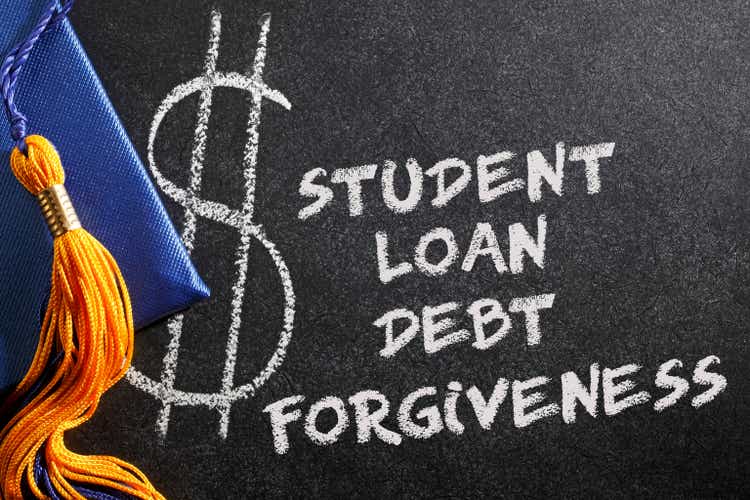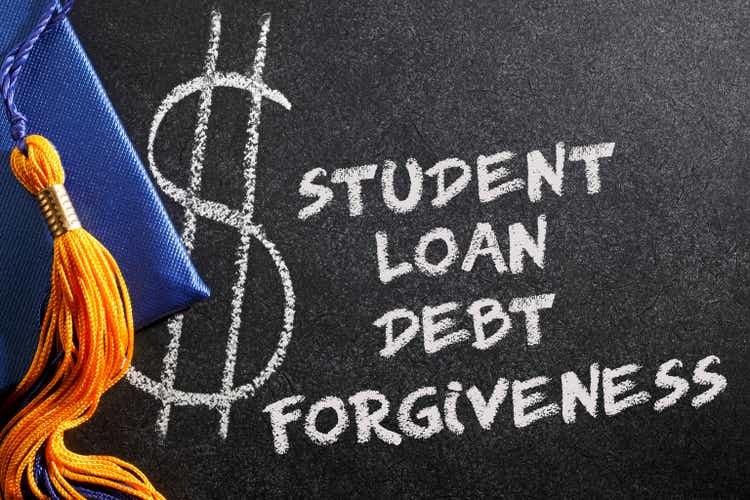
DNY59
U.S. President Joe Biden on Saturday signed a bill to suspend the debt ceiling into 2025, averting the country’s first ever default. One of the provisions of the legislation was the end of the suspension of federal student loan repayments.
In light of this provision, U.S. consumers with student loans will likely disproportionately reduce spending on soft goods versus other categories as they shift funds to pay down debt, UBS analyst Jay Sole said in a research note on Sunday.
Moreover, these consumers prefer brands over private label and specialty retailers over discounters, Sole added.
Sole named the following brands and retailers as more likely to be negatively impacted by this issue: American Eagle Outfitters (AEO), Carter’s (CRI), Crocs (CROX), Foot Locker (FL), Canada Goose (GOOS) (GOOS:CA), Gap (GPS), Nordstrom (JWN), Nike (NKE), Steven Madden (SHOO), Under Armour (UA) (UAA) and Victoria’s Secret (VSCO).
Headwinds from the restart of student loan repayments also caused KeyBanc Capital Markets to downgrade Target (TGT) stock on Monday, with the brokerage seeing elevated risk for consumer discretionary spending, particularly for the 2023 back-to-school and holiday season.
“Inflation and the overall macro environment has caused US consumers to defer many discretionary purchases over the past 18 months. Apparel has proven to be the category consumers defer most often,” UBS’ Sole said.
“Interestingly, market research of 1,392 US consumers with student loans shows this trend is even more pronounced among this group. We believe this indicates Student Loan Consumers will reduce spending on apparel in a big way when they have to start paying off their student loan debt,” Sole added.
The end of the suspension of federal student loan repayments has not been bad news for all stocks. Last week, SoFi Technologies (SOFI) surged 15% on optimism that the policy change may lead to increased demand for the company’s student loan refinancing services, which was a large part of its business before the pandemic.

